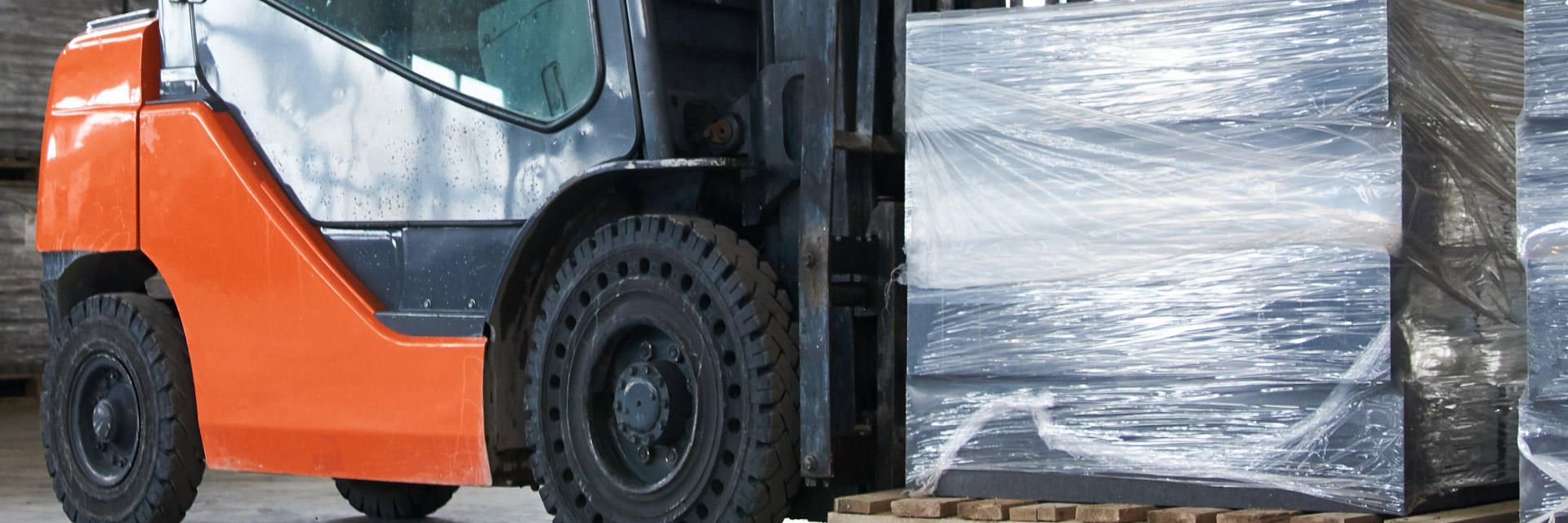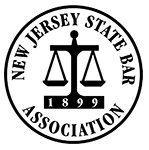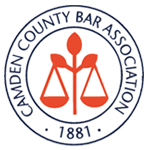New Jersey Forklift Accident Lawyers
Forklifts are commonly used in warehouses, loading areas, docks, and industrial sites. Unfortunately, forklifts account for 10 percent of all work injuries in warehouses or factories, even though they are involved in only one percent of all incidents. According to the U.S. Bureau of Labor Statistics, about 8,000 forklift-related injuries occurred in 2018, indicating an increase in accidents and a breakdown of safety procedures.
Forklifts may seem as though they are easy to drive, but that is not the case. These vehicles require licensure and careful attention to safety protocols, and the Occupational Safety and Health Administration (OSHA) believes that about 70 percent of forklift accidents are preventable.
An experienced New Jersey forklift accident lawyer should be contacted soon after these accidents occur, regardless of if the victim was operating the vehicle or injured by a forklift. Reviewing all legal options helps victims recover as much as possible while potentially preventing more forklift accidents in the future.
Why are Forklifts Potentially Dangerous?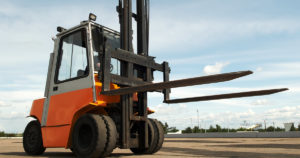
Forklifts are more dangerous than most warehouse and freight workers realize. Workers must be aware of a few basic facts about forklifts that might surprise the average person:
- Forklifts can weigh upwards of 9,000 pounds.
- A forklift can travel up to 18 miles per hour.
- Forklifts have only a forward braking system.
- Forklifts employ rear-wheel steering, making them far more difficult to control.
- Forklifts only carry loads in the front, causing a possible imbalance of the vehicle.
- Forklifts can lift heavy weights high in the air, increasing the chances of a tip-over accident.
Because forklifts are potentially dangerous and tip over easily, it stands to reason that the operator should be licensed, trained, and/or certified. Forklifts have become an easy alternative for businesses that do not wish to use bucket trucks or scissor lifts. Lawn service companies or contractors might use forklifts on big projects, and residents or community members should avoid these vehicles as much as possible.
Businesses may add sweeper attachments to clean parking lots, concrete surfaces, lobbies, or walkways, and other companies may attach a plow to remove snow and ice in the winter. Landscapers might use their forklifts to trim trees. Adding a trailer increases storage capacity while working on a construction site. To avoid a crane rental, businesses might also use a boom attachment to lift or move heavy objects across a worksite. Forklifts might even serve as training vehicles.
Specialty uses for forklifts, however, must be approved by the manufacturer to remain in compliance with OSHA regulations. When alternate operations are not approved by the manufacturer, the employer puts its workers in danger. Even if the manufacturer approves, some situations call for extra caution, as a forklift is still prone to tipping over or losing these attachments during a delicate operation.
What are the Rules for Operating a Forklift?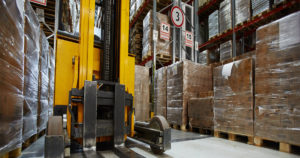
A forklift may seem like something everyone in a warehouse or on a worksite can use without much trouble. However, forklift operators should be certified and licensed after completing an OSHA-compliant training course. This means that everyone expected to operate a forklift in a facility must complete the training course first. Some companies may include these courses in their onboarding process, and others may send employees to a training course once they rise to a certain level.
Some companies may create a training program for their staff wherein a manager or supervisor trains all incoming employees. If this is the case, the trainer must maintain their licensure and work closely with the certification agency. Additionally, businesses in New Jersey must abide by all OSHA regulations regarding the operation of small machines. Local or state governments must be aware of the OSHA-approved state plan for New Jersey, which includes rules specific to the state. The following are a few items to remember about operating a forklift:
- Operators need a forklift certification but do not need to obtain a state driver’s license.
- OSHA does not offer training courses.
- OSHA regulations state that forklift licenses expire after 36 months.
- Retraining is required after a workplace accident, the equipment changes, or when drivers are cited for unsafe practices.
- Employees should ask employers to forward their certification information when changing jobs.
Forklift rentals often cause even more issues because businesses renting a forklift may or may not hand that vehicle over to a licensed operator. Business owners or managers with an immediate need might take extreme measures simply to obtain a forklift, and an accident might occur while an unlicensed driver is in the cockpit. In each case, accidents are simple to prevent with a strict adherence to OSHA guidelines.
No one under the age of 18 may operate a forklift, and it is unlawful to allow anyone else to operate a forklift without a license. Businesses can be fined by OSHA, the New Jersey Department of Labor and Workforce Development, or the New Jersey Department of Health for every instance in which an unlicensed driver operates a forklift, and employees should refuse to operate forklifts if they do not hold a license.
How Do Forklift Accidents Occur?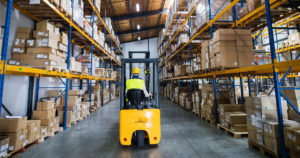
Forklift accidents occur most often when unlicensed drivers take the wheel and do not understand OSHA regulations. A licensed driver, however, can make critical mistakes that result in either injury or death. Safety items, such as mast-mounted cameras, blue spotlights, red warning lights, and stability control systems, help prevent accidents, but it is impossible to prevent every potential accident. Employees and drivers must be aware of issues they may face when working with forklifts. Common forklift accidents include the following events:
Tip-overs. Tip-overs most often occur when the load and the forklift are critically out of balance. Tip-overs or overturns cause 25 percent of all forklift deaths, and workers aged 55 to 64 were the most affected with 23 deaths in 2018. Although a forklift can carry up to 50,000 pounds, that weight must be distributed evenly by the operator. Some loads simply cannot be lifted to a high shelf in a warehouse or the second or third level of a construction project. The load might seem imbalanced if the operator drives too quickly, or an unsecured load may shift because the forklift is not strong enough to support that load. Operators should check the maximum capacity for the forklift before beginning a new project.
Falls. No one should ride on the forks at any time, but employees may choose to do so when reaching high shelves in massive warehouses. Although forklifts are capable of carrying massive weights, workers are not secure while sitting on the forks or even holding onto the cockpit housing. Employees should use secure ladders or stairs to ascend or descend from great heights.
Loss of cargo. Imbalanced cargo can fall from a forklift at any time. Even a palette that is a few inches off the ground might crush someone’s feet, injure their legs, or produce other serious injuries when sliding off the forks. Forklift operators should not stack too many items on the forks, as those items are impossible to secure during transit.
Drivers speeding across a warehouse or worksite might lose their cargo because of jostling or rough terrain. The same is true when drivers must come to an abrupt stop, as an unsecured load can slip off the forks. Forklift operators also do not have a full range of vision, and they may need a spotter who can help them monitor their load.
Caught-between or pinned-under accidents. Forklift drivers must be aware of their surroundings at all times. Caught-between accidents occur when the forklift strikes another person and pins them against a solid object. Even if the forklift strikes the worker and moves on, injuries could be serious. Pinned-under accidents can occur if the forklift tips over or when the forks lower onto someone during operation. Pinned-under accidents may also occur when the operator attempts to jump from the cockpit during a tip-over.
Pedestrian accidents. Pedestrian accidents can occur on a worksite, on a factory campus, or on the road. Guests, executives, and others who do not visit the worksite frequently may not be aware of the prevalence of forklifts on the site. As a result, these pedestrians could be struck at any time. Forklifts can even drive on the road when moving from one worksite to the other. Forklift drivers cannot assume that pedestrians will move out of the way, as these vehicles are quiet and not as imposing as larger construction vehicles.
What are Common Forklift Accident Injuries?
While forklift accidents can be catastrophic or even fatal, the U.S. Bureau of Labor Statistics catalogs a wide range of injuries. The most reported injuries in 2018 were fractures, bruises or contusions, and sprains or muscle tears. These injuries are easy to ignore because they may show few physical symptoms other than soreness; only extreme fractures, sprains, or contusions cause obvious symptoms that could lead to a hospital visit.
Cuts and lacerations can occur when workers are handling loads on a forklift or when employees are struck by a forklift. Someone caught between a forklift and another surface may also suffer severe lacerations or even punctures. Operators may experience soreness because of the jostling of the vehicle, and a repetitive motion disorder may result.
Amputations can occur during punctures, caught-between accidents, or struck-by accidents. If the driver tips over the forklift, their arm or leg could be crushed by the vehicle as it hits the ground. Although other workers must be diligent and avoid forklifts as much as possible, operators should keep their hands and arms inside the vehicle at all times.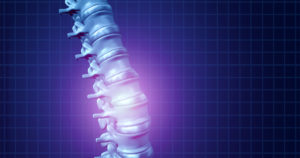
Back, head, and neck injuries range from mild to severe, depending on the nature of the accident. A mild injury may include a headache or a slight feeling of disorientation, but more severe injuries could include disability, paralysis, and even death. Employees should seek medical attention as soon as possible. It is best for employees to rule out serious injuries and seek help before a workers’ compensation claim expires, which is two years after the date of the injury.
Who is Liable for Forklift Accidents?
In a workers’ compensation case, an employer cannot be sued. Liability for forklift accidents often lies with third parties. Depending on the circumstances of the accident, victims may be able to file a personal injury suit against the following negligent parties:
The operator. Forklift operators with or without a license may make unsafe decisions that cause accidents. When it is clear that the operator made poor decisions, leading to an accident, they can be the subject of a lawsuit.
The rental agency. Rental agencies help businesses save money every year by offering short-term rentals for a fraction of the cost of a new forklift. Although customers trust rental agencies to do the right thing, the rental agency might not service or maintain its forklifts properly. In like manner, the rental agency might advise the client to use the wrong tires or attachments. For example, cushion tires are ideal for warehouses and flat surfaces, but pneumatic tires are best used on bumpy surfaces. Bad-faith business practices on the part of the rental agency leave it open to litigation.
The business/employer. In cases of gross misconduct, negligence, or deliberate malice, employees may sue their employers. For example, the business may have forced an unlicensed driver to operate a forklift, knowing that that is illegal and unsafe. Victims can speak to a lawyer about this exception to the no-fault workers’ compensation insurance system.
The manufacturer. The manufacturer of a forklift must produce a quality product using the appropriate parts. When the forklift is defective, victims of the accident may sue the manufacturer for its negligence. The case becomes more complex if the manufacturer hid its defects or delayed a potential recall.
Maintenance technicians or services. Forklifts require routine maintenance because they use hydraulics and several moving parts to function properly. Maintenance technicians or companies, however, must use the appropriate parts and techniques to service these vehicles. When the technician does not service the vehicle properly, it puts everyone in danger. Compensation is available because either the company or the technician did not do their due diligence.
What Types of Compensation are Available for Forklift Accidents?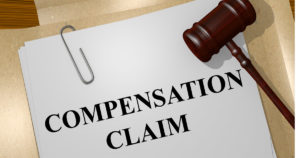
Injured employees are eligible for workers’ compensation coverage. It is important to note that some employees are exempt from workers’ compensation, and everyone should be made aware of their rights when hired. Workers’ compensation coverage starts when the victim is unable to work for seven days after an accident. Workers’ compensation benefits can include the following:
Medical benefits: New Jersey requires that workers’ compensation insurance pay for medical treatment, prescriptions, and hospitalization. The employer also has freedom to assign an in-network doctor to the injured employee.
Temporary Partial Disability: Injured workers with a partial disability also receive 70 percent of their average weekly pay. Workers with partial disabilities cannot complete their daily tasks, even though they are not totally disabled, and benefits end if the worker returns to work.
Temporary Total Disability: Injured employees experiencing total disability receive 70 percent of their average weekly wage while recovering. These benefits cannot be more than 75 percent of the Statewide Average Weekly Wage (SAWW). For 2021, the maximum benefit is $969 a week. Additionally, these benefits cannot be lower than 20 percent of the SAWW, and benefits end when the worker receives approval to return to work.
Permanent Partial Disability: Permanent partial disability includes a schedule of benefits produced by the State of New Jersey. Injured employees receive payment for losses that include the extremities, eyes, ears, or teeth. If the injured employee does not receive a scheduled payment, they may accept a lump-sum payment for injury to bodily systems, such as internal organs, the brain, etc.
Permanent Total Disability: Permanent total disability benefits continue for 450 weeks and may continue further if a medical exam shows the injured worker cannot obtain gainful employment or they reached their maximum level of recovery. In this case, the worker still receives 70 percent of their average weekly pay. The state also allows permanent total disability benefits when two major losses occur involving the eyes, arms, hands, ears, feet, and legs.
Death Benefits: Death benefits are also paid at 70 percent of the worker’s weekly wage, and the insurance company must pay up to $3,500 for final expenses. The surviving spouse and children receive these benefits, which are generally divided by a judge in a hearing. Spouses receive these benefits for life, and children receive benefits until age 18. College students may receive these benefits until age 23, and disabled children can receive benefits outside the stated age limit. If the decedent has other dependents, such as parents, grandparents, grandchildren, or disabled siblings, those dependents must be approved by a judge.
Wrongful death. Wrongful death lawsuits pay beneficiaries of the victim’s estate after their death. In these cases, the immediate family of the victim may file suit on behalf of the estate. Families should ask a lawyer who is eligible to file the lawsuit so that the legal process can begin. Families may take time to grieve and recover from a shocking loss, but they cannot wait longer than two years to take legal action.
Do I Need a Lawyer?
Retaining a lawyer is the safest thing for victims to do, and a lawyer takes the case when there is enough evidence to proceed. Victims may be approached by their employers or the insurance company to settle quickly. Victims should not sign anything without speaking to a lawyer first, and they should not give any statements to the insurance company or employer without consulting a lawyer.
Lawyers work on behalf of the victim, reviewing the circumstances of the accident, and investigating all liable parties. Victims should focus on recovering while their lawyers aim to settle or argue the case in court. If the case involves workers’ compensation, the victim need not do anything more than report the accident to their supervisor.
Although victims may believe they have no legal recourse, they should speak to a lawyer before giving up on compensation. Lawyers may determine that workers’ compensation coverage is due or that an independent contractor may file suit against the employer. If necessary, a lawyer may file concurrent lawsuits against the forklift manufacturer or operator.
New Jersey Forklift Accident Attorneys at Pietras Saracino Smith & Meeks, LLP Assist Forklift Accident Victims
If you or a loved one was injured in a forklift accident, speak to our forklift lawyers in New Jersey. We will help you recover the compensation you deserve. Call us today at 856-761-3773 or contact us online for a free consultation. Located in Cherry Hill, New Jersey, we proudly represent workers throughout South Jersey, including Camden, Cinnaminson, Delran, Maple Shade, and Pennsauken.
